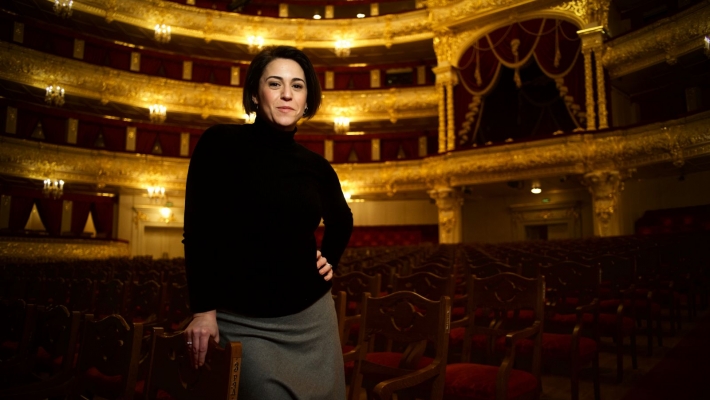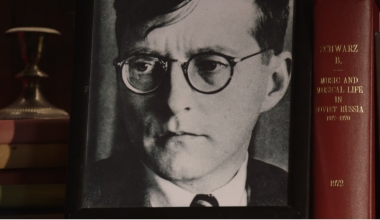
In this second episode Suzy Klein investigates the 1930s, when the totalitarian dictators sought to manipulate and control music for ideological ends and composers living under extraordinary personal pressures wrote some of the greatest music of the 20th Century.
This time the lives of the composers are in the spotlight – and we’re in the company of the greats: Richard Strauss, Dmitri Shostakovich and Sergei Prokofiev, who produced some of the 20th Century’s best-loved music whilst navigating the precarious tightrope of working for perhaps the most terrifying music-lovers ever: Hitler and Stalin.
There are some surprising revelations: the political message of the classic musical fairytale, Peter and the Wolf; the secret code hidden in Shostakovich’s quartets; Strauss’s deeply personal reasons for trying to please the Nazis… Expect too some riveting stories: Suzy uncovers why Hitler adored Wagner but banned Mendelssohn’s wedding march; how Stalin used music to subtly infiltrate minds; and why Carl Orff’s ever-popular ‘Carmina Burana’, a Nazi favourite, appeals to our most primitive senses.
The film raises some intriguing questions: Can we pin meaning onto music? What are the moral responsibilities of artists? And did the violence and tyranny of those regimes leave an indelible stain on the music they produced?
But ultimately it is the music itself that moves us. The stories are richly brought to life by performances from the BBC National Orchestra of Wales and its chorus – ably demonstrating Suzy’s argument that music’s incredible power to bypass our brains and reach for our hearts makes it a potent and dangerous force.


